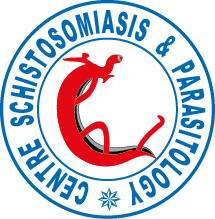About Us
What is COUNTDOWN?
The COUNTDOWN consortium was formed in 2014 and is a research programme consortium funded by The Research and Evidence Division (RED) of The Department for International Development (DFID). Neglected Tropical Disease (NTD) researchers, policy makers, practitioners and Implementation Research specialists, from the UK, USA and Africa, have come together to generate knowledge about the realities of increasing the reach of NTD treatment, in different contexts. It is dedicated to investigating cost-effective, scale-up and sustainable solutions, necessary to control and eliminate the seven most common Neglected Tropical Diseases by 2020.
Funded By?
The COUNTDOWN research consortium is funded by the UK's Department for International Development(DFID) which was created in 1997 to assist in tackling world poverty. DFIF is committed to administering overseas aid and taking action to achieve the United Nation's Millennium Development Goals.
Research Focus
1. Consolidating Evidence
This theme will bring together all existing Neglected Tropical Disease (NTD) literature in one consistent and convenient place. The aim is to make it simpler, clearer and faster for decision makers to find information.
2. Social Sciences Approaches
COUNTDOWN is investigating how different factors within the health system help or hinder the scale-up of Mass Drug Administration (MDA) for NTDs.
3. Health Economics
The health economics theme assesses the efficiency, fairness and value-for-money of NTD programmes by conducting household-level micro-economic surveys.
4. Integrating Complimentary Strategies
The integrating complimentary strategies theme recognises that the scale-up of MDA for NTDs alone is not enough to achieve the London Declaration 2020 targets. This theme will examine how additional strategies such as vector control, the provision of sanitation and hygiene, new tools, capacity building and better health awareness might accelerate progress toward these goals.
5. Scale-up of treatment for Schistosomiasis and Soil Transmitted Helminths
COUNTDOWN examines how factors such as the expansion of MDA and the integration of community led total sanitation could help the rapid scale-up of treatment for snail fever and intestinal worms, which is required to achieve the 2020 targets.
Where we work?
The CouNTDown Programm is currently conducting research in four African countries: Cameroon, Ghana, Nigeria and Liberia. Each country reflects a different level of health expenditure, diversity in disease ecologies and NTD skills, experience and programme implementation.
COUNTDOWN in Cameroon
The programme was launched in Cameroon on the 9th of October 2015 and was presided by the Minister of Public Health, His Excellency the Minister, André Mama Fouda.
There have been some advancements made in Cameroon around scaling up NTDs control interventions, which has led to an increase in the number of people being treated for some neglected tropical diseases. In 2014, 10.6 million people were treated for lymphatic filariasis and onchocerciasis, 2.8 million for schistosomiasis, and 8.3 million for soil-transmitted helminthiasis. Albeit the advancements being made, there are still many bottlenecks which need to be addressed if we are to meet our WHO target of eliminating these diseases by 2020.
The main aspects of the COUNTDOWN project in Cameroon will involve:
- Extending praziquantel treatment for schistosomiasis to all populations in need, especially pre-school aged children and pregnant women, and establish biannual treatment in school aged children.
- Extending treatment in onchocerciasis hypo-endemic areas and explore alternative treatment strategies where lymphatic filariasis and onchocerciasis are co-endemic with Loa loa.
- Sharing learning on state-of-the-art diagnostics, epidemiology, and social sciences with other COUNTDOWN countries to build a strong consortium in West and Central Africa.
The implementing partners for COUNTDOWN in Cameroon are the Neglected Tropical Disease Programme in the Ministry of Health and the University of Buea under the leadership of Professor Louis-Albert Tchuem Tchuenté and Professor Samuel Wandji respectively.
